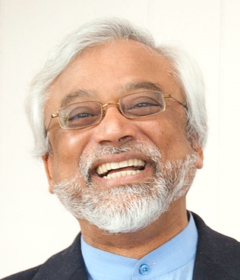By Jamal Rahman
“Do not attribute purity to yourselves; He knows best who is most pious.” (Qu’ran 53:32)
“Pure is the one who has purified oneself of the notion of one’s own purity.” (Sufi saying)
The 13th century sage Saadi Shirazi writes of an incident that impacted him deeply. As a child, he participated in all-night vigils with his father who was a Sufi teacher with a following. One night after hours of Qur’anic recitations and prayers, all of the students one by one fell asleep, but not the vigilant child. He drew his father’s attention to the scene, remarking that looking at them one would think that they were all dead. As he continued with his criticism, the father interrupted him with tenderness, “Darling of your father, I would prefer that you also fall asleep like them, rather than disparaging and slandering them.” Those words penetrated his soul and awakened him to the subtle ways the ego can engage in a “holier than thou” attitude.

Henceforth, Saadi explored and practiced the divine quality of humility. He experienced true dignity by becoming aware of the shrewd ways the ego can be prideful. He felt inspired to write a classic poem about a raindrop dripping from a cloud. When it saw the sea, the raindrop blushed and exclaimed, “Who am I in the presence of the Sea?” Deeply moved by the raindrop’s humility, an oyster took it into its heart, and fate so shaped its destiny that eventually the raindrop became a precious pearl.


